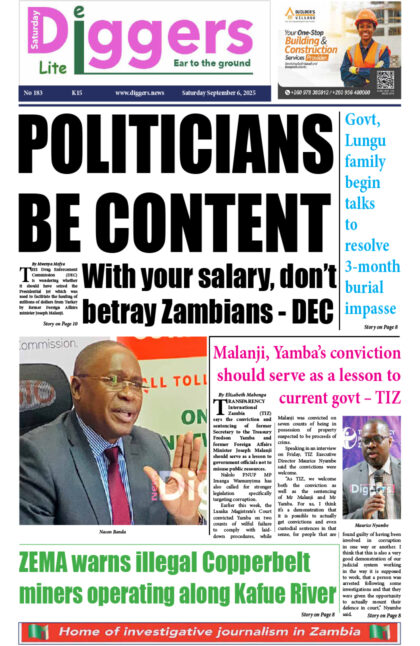PRESIDENT Edgar Lungu says he will consult widely before he can decide on whether or not Zambia must pull out of the International Criminal Court (ICC).
Speaking to journalists shortly departure for Botswana today, President Lungu said he will need to ask the people of Zambia on what they think before considering to pull out of the ICC.
He said Zambia needs to study the matter critically before making any decision. “This is a matter which concerns the whole nation and it calls for critical engagement. Zambia will raise this issue at the African Peer Review Mechanism meeting,” said President Lungu.
The African Union (AU) has called for the mass withdrawal of member states from the International Criminal Court saying the court victimises African leaders.
Foreign ministers agreed to a plan for pulling out of the ICC and immediately begin work on local justice mechanisms, saying The Hague-based court, offered little chance of advancing justice in the continent.
The decision to withdraw from the ICC has been at the forefront of discussions at the AU, but this is the first time that the AU’s Open-Ended Ministerial Committee on the ICC, currently chaired by Ethiopia, with Algeria, Burundi, Nigeria, South Africa and Uganda, as its management bureau.
The countries which participated at the ministerial meeting on the ICC were Algeria, Angola, Burundi, Chad, Congo, Cote d’Ivoire, Chad, Djibouti, Egypt, Ethiopia, Eritrea and Equatorial Guinea.
The others were Kenya, Libya, Madagascar, Mali, Mozambique, Nigeria, Rwanda, Senegal, South Sudan, Somalia, South Africa, Tanzania, Uganda, Zambia and Zimbabwe.
The AU Executive Council, which wound up its meeting last month after preparing the AU Summit agenda, adopted a new strategy on how to manage justice in Africa after the ICC exit.
While the Executive Council adopted the decision to pull out of the ICC, the final steps on when to pull out would be made by the countries on an individual basis. However, those which agree to pull out of the court agreed to do so simultaneously.























